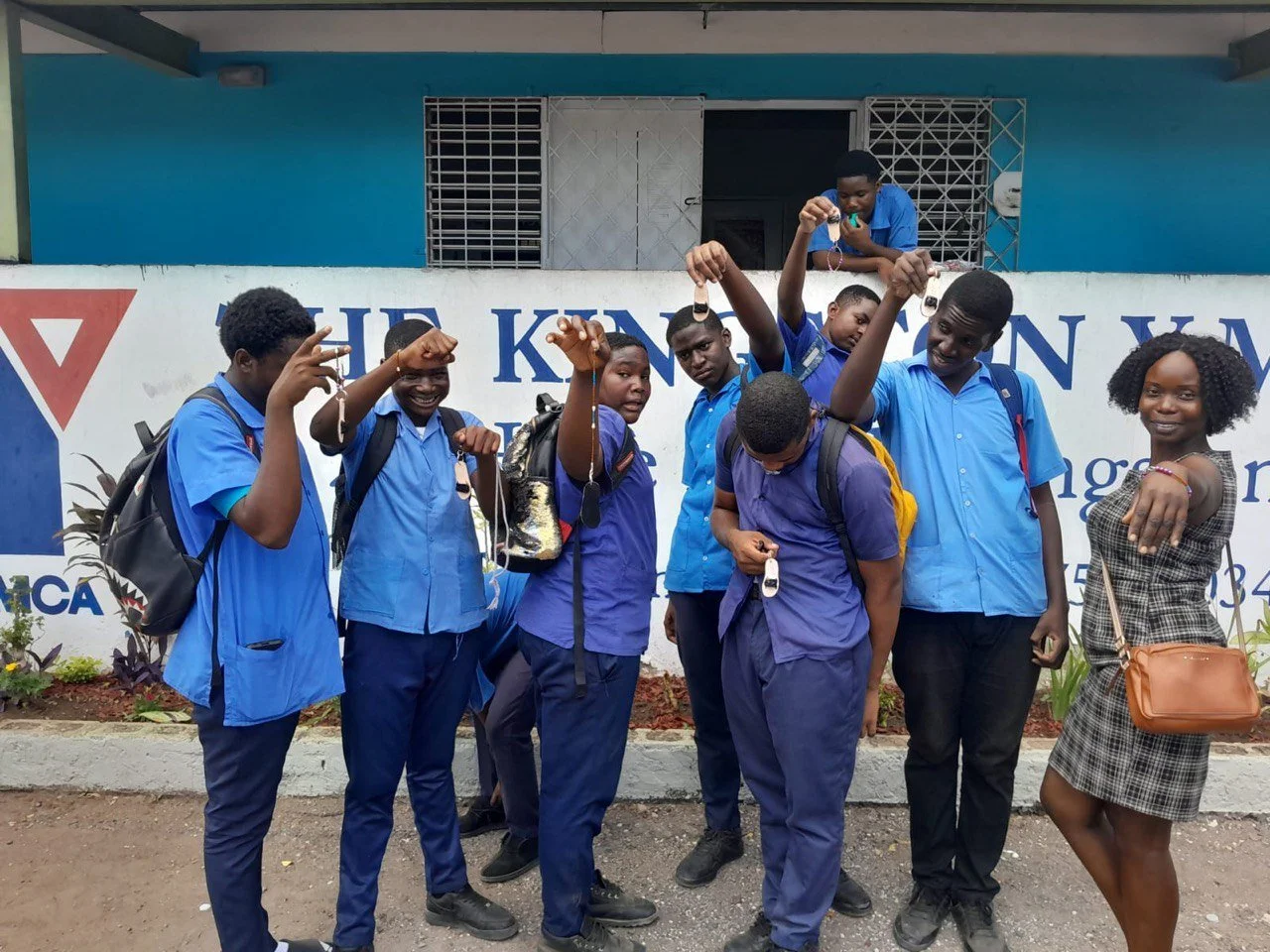Youth Development Programme
The YMCA Youth Development Programme (formerly the Street Corner Boys’ Programme) was founded in 1974 when the Kingston YMCA’s Board saw the need to concern itself with the alarming growth of Street Children - all boys between the ages 11-15 years. It has grown throughout the years due to a steady increase in (the youth at risk) marginalized population. Prior to 1997 there were restrictions in the number of persons who could be accommodated in the programme due to the paucity of funds. At the time Kingston YMCA was the only Centre providing such a service and catered to approximately 60-70 boys. The number increased to 200 and the programme expanded to increase the number of outreach Centres from one to three namely; the YMCA/Amy Bailey Training Centre in Central Kingston (acquired by the YMCA in 1990) with 100 students in attendance and the communities of Caymanas and Glade in St. Catherine with an average attendance of 20-25.
The mandate to the staff and volunteers was to deliver a holistic approach to the programme which include the development of Spirit, Mind and Body in its implementation. The young people referred to as “Youth at Risk” are exposed to an educational programme which includes:
Academic Subjects
Vocational Skills
Personal and Family Development (Building their self-esteem)
Reproductive Health (Empowering them to be ready for the job market)
Instilling Christian Principles
Empowering the young people to re-enter the main School System
The programme is geared towards students who have dropped out of the regular school system due to expulsion, slow learner and some who have never been to school.
This must be achieved in a clean and violent free area utilizing all resources available to the YMCA or offered by networking with other organizations providing needy services such as - HEART/NTA, Women Centre, UWI, UTECH, YWCA, LEAP Centre, Ministry of Health, Ministry of Education, Ministry of Youth, Culture, Gender and Sport, the Community Safety and Security Branch (CSSB) of the Jamaica Constabulary Force, to name a few.
Most of the students are from the inner city communities and are either referred to us by the Family Court, Ministry of Education, Police, Schools, the Child Development Agency and concerned citizens.
The involvement of students participating in a number of extra-curricular activities, such as Football, Swimming, Rugby, Badminton, etc., excursions to places of interests among others have enabled the students to move on to institutions of higher learning (and those who have been employed in both private and public sectors such as Hotels, the Ministry of Labour Overseas Employment Exchange Programme, and others) make us feel proud.
Over the years, students have sat the Grade 9 Achievement Test and we have had a 100% passes – for High Schools. Some have taken CXC exams and are also successful.
The Youth Development Programme was partially funded by USAID and managed by People’s Action for Community Transformation (PACT). However, this project ended in March 2009.
HEART/NSTA presently pays the salaries of Teachers, they also provide a stipend that helps the students with bus fares. It should be noted that on many occasions, the youngsters come to us without breakfast.
Each year the demand for the programme becomes greater as more persons are aware of the services offered, hence our resources are thinly stretched. Presently there is about pupil 80 on roll and there are some to be admitted in the programme. It is our intention to try and ensure that no class has more than 20 students so that better learning can take place.
Some of the challenges faced, have to do with the social ills in our society. When there is a flare up in a community, students are not able to attend school, in some instances, we lose them to the violent crimes which beset our society and the serious problem of the lack of positive male role models in their lives hamper their growth and development. They suffer from low self-esteem and often does things to get attention.
Our responsibility, based on the mandate, is to do everything to ensure that the youngsters become useful citizens and make their contribution. We also seek to empower parents to become involved in their total development through parenting workshops.
Our greatest needs at the YMCA are:
A continuous grant to offset our operational costs to run the programmes
The provision of more teachers Resuscitation of the Camp Hamilton, Caymanas Bay site
A building to accommodate more comfortably the school (presently the school is held in 4 containers which are in need of renovation). We have outgrown this facility and need to improve the physical plant by including a Reading Lab., and a proper Library.
Students are allowed to participate in all the activities organized at the YMCA (without any cost) for the purpose of enhancing their development. We often times try to get sponsorships to help in this area but without success.
We network with the following Institutions/Agencies:
HEART/NTA Community Training Intervention
Child Development Agency
Family Court
Ministry of Health
Ministry of Labour
University of the West Indies – Department of Sociology, Social Work and Psychology and the Social Welfare Training Centre
University of Technology
Portmore Community Colleges
Rotary Club of Kingston
Women Centre
Jamaica Theological College
Constraints (Gap in carrying out the programmes plan)
Financial sustainability for the programmes and overheads
Full time Social Worker/ Dean of Discipline
Limited resources to carry out some of the activities/programmes and to improve the facilities



